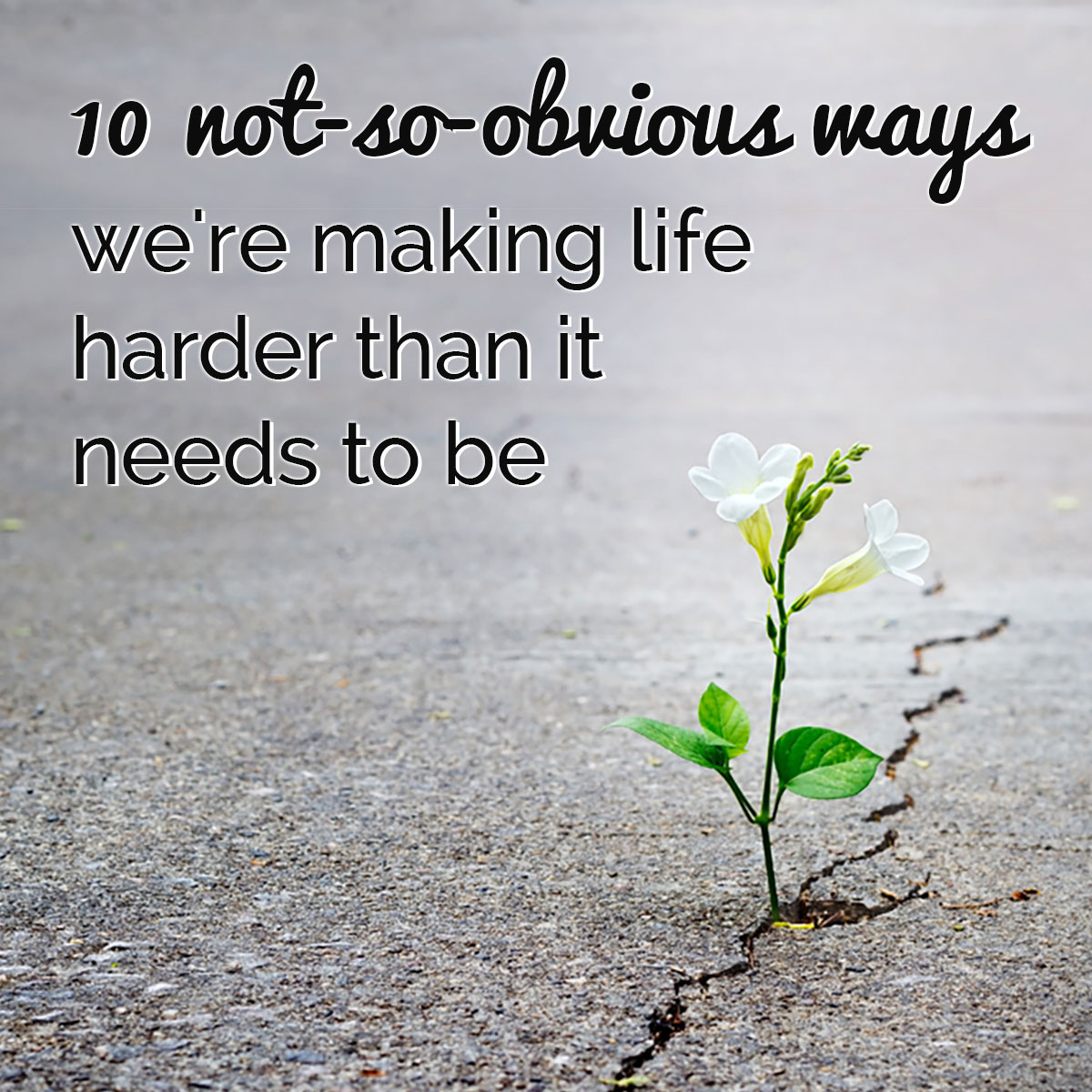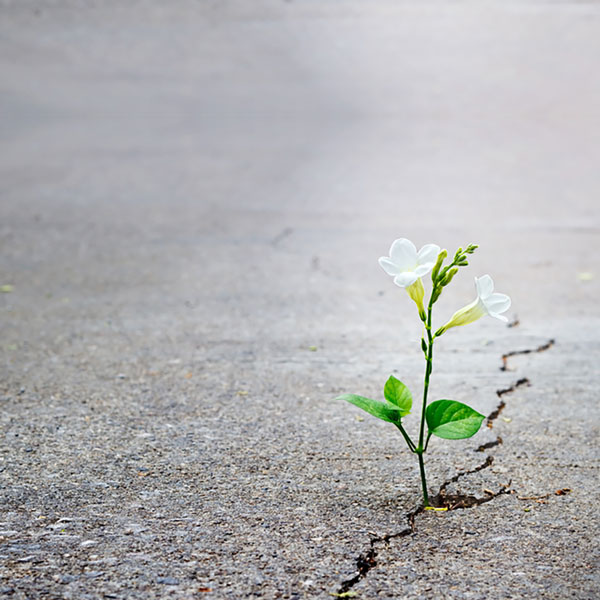
A few weekends ago my husband and I took our kids on a day trip to a national park. The drive out there was going to take more than an hour and my son asked if he could take his iPad. My husband said ‘No, we never had iPads in our day. Look out the window and enjoy the scenery.’
Mmm.
I think we all know how this played out.
After 30 minutes of driving the kids were bored and proceeded to bicker the rest of the way to our destination. Bickering that was punctuated only by hissing threats from me.
Despite arriving at our destination somewhat shitty at each other, we all had a wonderful time climbing rocks, looking at waterfalls and appreciating the joys of nature. Everyone was lovely and tired when it came time to drive home.
Unfortunately, my four-year-old is a perpetual noise-making machine, only quiet when she sleeps, while my eight-year-old is a textbook introvert who needs space and quiet to recharge. By the time we got home, M had been quietly humming to herself in her chair for a solid 30 minutes while J, who could ordinarily create a cone of silence for himself with an iPad and some headphones, was pressed into the furthest corner of the back seat from her, rocking slowly back and forward whimpering ‘Make her stop, make her stop’.
Good times, my friends. Good times.
Regardless of where you sit on iPads and the like, the above is an obvious example of people (my husband) making life harder than it needs to be for everyone.
There are less-obvious things we’re all doing on a daily basis however, that are doing the same.
Here are ten of them:
1. Saying ‘Yes’ or ‘Maybe’ when we should say ‘No’
Most of us are people pleasers. We like to be liked and from an early age we learned the fastest path to being liked was to say Yes to people when they asked something of us. That’s an extremely hard behaviour pattern to break. The problem with all the Yeses – be they to our kids, partner, workmates or friends – is they lead to us horribly over-committing ourselves. Before we know it, our days are scheduled down to the last minute and the tiniest thing going wrong can set off a domino effect that takes a week to recover from. It’s not a fun way to live and the resentment it causes (from the zero time we suddenly have for doing things we love) is an insidious cancer that eats away our insides and erodes relationships.
The suggestion most people make here is to simply become someone who’s able to say No to things they don’t have time for, or don’t want to do. But, as a serial people pleaser myself, I know this is asking too much. So, say ‘Let me get back to you’ instead. It removes you from the immediacy of the situation, allows you to go away and remind yourself if you’re saying Yes to this thing, then you’re saying No to something else (probably something you’d much rather be doing). As Brene Brown says, it’s better in these moments to choose the discomfort of saying No over the resentment of saying Yes.
It’s also worth remembering you don’t say No because you are busy. You say No because you don’t want to be busy.
2. Making too many decisions
Your alarm goes off and you lie there debating whether to get up now or hit snooze. You decide to get up. As you wander into the kitchen you debate whether you should put a load of laundry on before allowing yourself to scroll through Instagram for five minutes. Instagram wins. The main reason you got up is to go for a walk before work, but you know a heaving inbox will be waiting when you get there so ponder whether you should tackle those emails instead. It’s cold outside so the inbox does look more appealing right now. As you check your emails you’re thinking about breakfast. Smoothie or eggs? A smoothie is quicker to make so you decide to have that. What clothes are you going to wear today? Will you take the bus to work or drive? Will you pack a lunch or just grab something from the cafe next door?
It’s not even 7.30am and you’ve already made 15 decisions for the day. By the time you get to the office you’re shattered and have no idea why. It’s because you’re suffering from decision fatigue. Every decision we make over the course of a day fatigues us mentally and impairs our ability to make the next decision a good one. It’s why we’re more likely to eat something healthy for breakfast and pizza for dinner.
Is there a way to avoid all the micro-decisions we seem to need to make before we even leave the house in the morning? Yes, the answer is routines. Get up at the same time each day, do the same things in the same order each morning when you wake up. Lay out your clothes for work the night before. Have the same thing for breakfast each day. When it comes to exercise, it’s easier to mandate it’s something you do every day rather than ‘four days a week’.
3. Not testing assumptions
You assume you know how someone is going to respond to a request, so you don’t ask. You assume you’re going to fail at something, so you don’t try. You assume because ‘everyone does it that way’, that way is the best way to do something.
When we test our assumptions, sometimes we find out we’re right. More often, however, we’re surprised.
The person we never thought would mentor us says ‘Sure’. The client we thought was out of our league isn’t. The 5km we never thought we could run without stopping turns out to be hard, but totally do-able.
The beautiful thing about testing assumptions is how much easier it makes everything. Instead of overthinking something for three weeks and trying to read people’s minds, you shortcut the whole process by simply asking. If they say ‘Yes’, then hooray. If they say ‘No’, then hooray. Certainty beats uncertainty every day of the week. And every bit of certainty in life makes it easier.
4. Self-sabotage
You’re trying to create the habit of waking at 5.30am every morning … but you continue to watch TV on the couch until midnight.
You’re trying to eat more healthily, but your pantry and fridge are chock full of chocolate and ice-cream.
You’re trying to create a morning exercise habit, but your kids are terrible sleepers.
Forming good habits is hard enough as it is. By doing the above, you’re asking willpower to do all the heavy lifting and when you ‘slip up’ your immediate conclusion is ‘I just don’t have the necessary willpower for this’. The thing is, no one does. People who are successful in forming these habits, they don’t have more willpower than you. They succeed because they make it easier for themselves to do so.
They go to bed at 10pm, not midnight.
They know if something’s not in the house, they can’t eat it.
They realise that forming a morning exercise habit with kids who are up three times a night is too much to ask of themselves – so they aim to go for a walk every afternoon instead.
5. Being friends with the wrong people
Some people specialise in passive-aggressive digs that slowly erode your self-worth.
Some people come to you when they need something, but disappear when you need help.
Some people are relentlessly negative and drain your energy.
Those people aren’t ‘bad’ people. They’re just not good for you.
Life gets easier when you decide: ‘Hey, you don’t make me feel good about myself so, if you don’t mind, I’m going to spend my time with people who do.’
6. Letting your kids do too much stuff
Somewhere along the way, we decided if our kids displayed an interest in something, then we were honour-bound to let them have a go.
This sees our weeknights and weekends spent tag teaming with our partner as we taxi the kids from piano lessons to basketball, from drama to gymnastics, from tennis to ballet. We’re answering emails during swim class while fending off whines of ‘I’m bored’ from the non-participating sibling.
Evening routines are disrupted, weekend downtime is non-existent and we’re all permanently frazzled.
Overscheduled kids are overtired kids. Overtired kids aren’t loving life and neither are their parents (you!)
Put a firm ceiling on the number of activities your kids are allowed to do. (For example, one sporting activity and one non-sporting activity per season.) If they want to do more, they have to pay for it themselves and find their own way there.
7. Not getting household help
If you love spending your weekend hours scrubbing the grout in your bathrooms, mowing the lawn or doing little maintenance jobs around the house, then, great! If coming home from a long day at work and spending an hour in the kitchen preparing dinner is your idea of relaxation, brilliant. If you thrive on squeezing eight hours of work into a five-hour window so you can be at school pick-up every day, magnificent!
If, on the other hand, these things are wearing you down and causing you to drag your feet through life, and if you have the means to employ people to do them … then why wouldn’t you?
I know so many business owners who happily outsource stuff in their business because it makes their life at work easier, but won’t outsource things in their home (even though they can afford it) because ‘there’s no return on investment’. I think sanity, time to breathe and the ability to spend time ‘being’ rather than ‘doing’ is a pretty significant return on any investment in household help!
8. Multi-tasking
Many of us pride ourselves on being able to do several things at once but it’s been proven quite conclusively that multi-tasking is making our lives harder.
Most multi-tasking is actually ‘task-switching’ (going back and forth between two things as opposed to simultaneously working on two things) and studies have shown it takes us longer to complete those tasks than it would if we did one to completion, then the other.
The only kind of multi-tasking that’s effective is combining something that requires no active thought (like walking) with an easy cognitive task (like listening to a podcast). But, even then, when you have to cross a road or step out of the way of an oncoming cyclist, that’s task-switching. And if you’ve ever walked into something while listening to a podcast – you’ll have experienced just how poor we humans are at it.
9. Taking on too much information
Before we book the Bali hotel we first read all 200 of its Trip Advisor reviews.
The stomach pain our child is complaining about leads us to Dr Google, parenting forums and at least 30 explanations for what could be causing the pain.
We jump on Facebook for ‘five minutes’ and 40 minutes later we’re still there having fallen down the rabbit hole of everything from Kim Kardashian’s bum to the Large Hadron Collider.
All this information paralyses us into inaction. And, because the human brain is more tuned into fear-based information than any other, it can make us feel like things are worse than they are.
The easiest cure for this? Put a hard ceiling on the amount of information we allow ourselves to take in. We also need to understand that when we’ve crossed the line between being informed, and being confused, we can’t research our way out of it. It’s both easier and more time-efficient to seek out an expert than interrogate the information ourselves.
10. Letting the perfect be the enemy of the good
Despite knowing perfection is impossible to achieve, we shoot for it anyway. We want to be perfect parents, partners, employees, service providers, friends, experts, advisers … the list, it goes on.
Or, we tell ourselves we’re not so silly as to strive for perfection, but fail to realise the stupidly high standards we’re setting for ourselves are just as unachievable.
Striving for these standards makes life hard because it means we’re eternally dissatisfied – always striving, never arriving. Or, worse, we don’t strive because if it can’t be perfect, why bother?
There are three ways to overcome this.
- Understand that trying and failing is better than not trying at all. (We learn heaps from failure; we learn nothing from not trying.)
- Test the assumptions we have about what people expect of us. More often than not, people expect less than we think.
- Practise self-compassion.
The third point there is the most important, but the hardest to do. Here’s how you get better at it.
Imagine what you’d tell a friend who was overthinking something out of fear of failure or rejection. Or frustrated because they’ve not managed to get that exercise habit happening. Or feeling completely overwhelmed.
You’d probably offer them kindness, understanding and encourage them to cut themselves some slack.
Self-compassion is simply extending that same level of kindness and understanding to ourselves.
Give it a go. You’ll be surprised to see how much life easier gets when you start talking to yourself in the same way you would a great friend.

